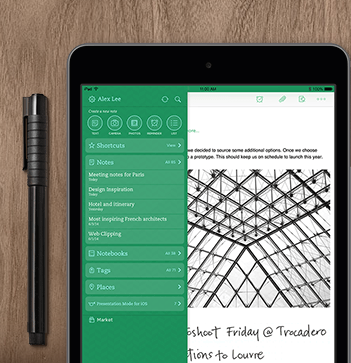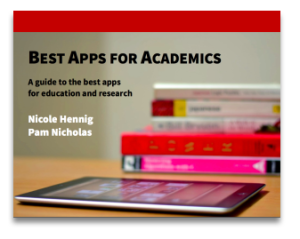 When I was head of user experience at the MIT Libraries, my team and I interviewed undergrad and graduate students about their academic workflows as part of a study of how new technologies were changing how students did their work. One of the problems we heard about often was something I’d like to call “fragmentation frustration.”
When I was head of user experience at the MIT Libraries, my team and I interviewed undergrad and graduate students about their academic workflows as part of a study of how new technologies were changing how students did their work. One of the problems we heard about often was something I’d like to call “fragmentation frustration.”
With notes in so many formats (handwritten, typewritten, photos, scraps of paper, printed PDFs with notes scribbled on them), students were finding it difficult to keep track of everything and later find something they knew they had.
A way to organize and find everything again

Since then, I’ve noticed that many academics are finding success with Evernote (and writing about it). Because you can input your notes in so many ways (snap a photo, speak a voice note, photograph your handwritten notes, type notes, and email notes), Evernote is becoming a very useful search and retrieval bucket for a multitude of note formats.
With options for creating folders and multiple tags, there are many ways to find your notes again. Since it synchronizes between your mobile devices and your desktop or laptop computers, you can access your information from anywhere. It can even scan your images and recognize the text so that later you can search for text within images.
In Best Apps for Academics (the ebook that I co-authored with Pam Nicholas of MIT), we include the following examples:
- Jennifer Carey, Director of Academic Technology at the Ransom Everglades School in Miami, writes about Using Evernote for Research in history courses as a way for students to collect all their sources.
- Brian Renshaw discusses tagging vs. notebooks as part of his series of posts on Evernote for academics.
- Kevin Eagan, on the blog, Critical Margins, writes about scanning handwritten notes to save in Evernote. The app can recognize and save the words in your image – if your handwriting is clear enough!
- For more tips on the best ways to use Evernote, see this article from Lifehacker: “I’ve Been Using Evernote All Wrong. Here’s Why It’s Actually Amazing.”
Get inspired with more examples
I’ve been collecting even more academic examples in my collection on Storify:
“How academics and scholars are using Evernote.”
So if you’re struggling with managing a large amount of information, I’d encourage you to read some of these examples for ideas and inspiration. You just might find a system that works for you. (I have no relationship with Evernote — I just find it extremely useful for managing my own information).
The best mobile apps are helping scholars organize their information effectively, leading to quality research and publishing.
 If you’re interested in organizing your notes, streamlining your research, synchronizing your life, and presenting information effectively, get our ebook: Best Apps for Academics. You’ll see many more examples of how academics are using the best apps to make their lives better.
If you’re interested in organizing your notes, streamlining your research, synchronizing your life, and presenting information effectively, get our ebook: Best Apps for Academics. You’ll see many more examples of how academics are using the best apps to make their lives better.
We’ll have an updated version (1.2) ready soon. Buy the book anytime and you’ll get all future updates for free.